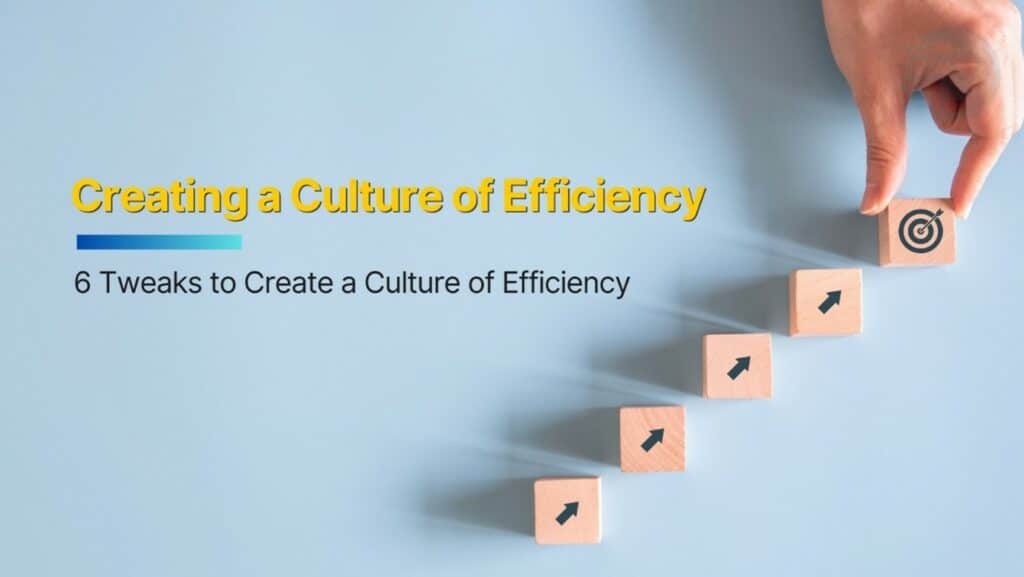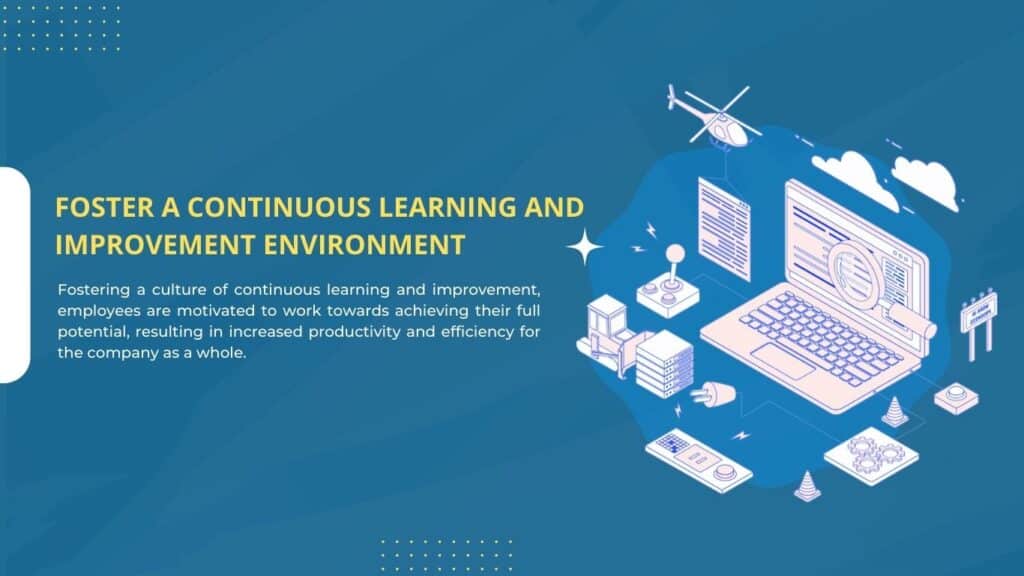In today's fast-paced environment, businesses are adopting ways to be efficient and stay competitive. Creating a culture of efficiency is the key to achieving long-term success.
Here are a few simple changes that needs to be brought about in fundamental areas. In this article, we provide six tweaks that can help you build a culture of efficiency in your workplace. By implementing these, your business can be better positioned to maximise productivity, streamline processes, and increase profits.
1. Set clear expectations and goals for your team to work towards
Setting clear expectations and goals for team is crucial for their development and job satisfaction. It helps them understand what is expected of them and what they need to achieve to succeed in their role.
By providing specific, measurable, achievable, relevant, and time-bound (SMART) goals, your team can focus their efforts and feel motivated to achieve their objectives. Regular feedback and check-ins can also be helpful in tracking progress and providing support when needed. This approach can drive productivity, engagement, and retention, ultimately leading to better outcome for the business.
2. Encourage open communication and collaboration amongst team members
Encouraging open communication and collaboration amongst team members is vital for cultivating a culture of efficiency. When team members are encouraged to share their ideas and opinions freely, it fosters a sense of inclusivity and teamwork, which leads to better problem-solving and decision-making. A collaborative work environment also inspires creativity, innovation, and trust among team members. Leaders must create a safe space for their employees to communicate and provide opportunities for team building and bonding exercises. Allowing everyone to have a voice and a sense of ownership in the project ultimately leads to greater productivity and success.
3. Foster a continuous learning and improvement environment.
Creating a continuous learning and improvement environment is a fundamental aspect of building an efficient workplace culture. The key to this is encouraging employees to engage in ongoing professional development and providing opportunities for learning and growth in their roles. This can be achieved through various means such as training programs, mentorship, regular performance feedback, and encouraging a collaborative environment.
By fostering a culture of continuous learning and improvement, employees are motivated to work towards achieving their full potential, resulting in increased productivity and efficiency for the company as a whole.
4. Streamline processes and eliminate unnecessary tasks or steps
Streamlining processes does not refer to reference points or processes like necessary checks or secure backup, this rather refers to the elimination of unnecessary tasks or steps in order to create a more efficient culture. This is achieved by analysing current processes and identifying areas of improvement or redundancy. By reducing these inefficiencies in workflow, businesses can free up time and resources to focus on more important tasks. This can lead to increased productivity, cost savings, and ultimately, a more successful organization. A culture of efficiency can be fostered by encouraging employees to continually seek out opportunities for improvement and empowering them to implement changes that streamline processes
5. Recognize and reward employees who exhibit efficient behaviour and outcomes
Recognising and rewarding employees who exhibit behaviour and outcomes associated with efficiency can help cultivate a culture of efficiency within an organisation. By acknowledging and recognising employees who consistently achieve targets in a timely, effective, and cost-efficient manner, organisations can create a sense of competition while providing an incentive for others to strive for success. This promotes a positive impact as employees work harder towards achieving goals, generating greater results, and boosting overall productivity. Incentives may be in the form of bonuses, promotions, or recognition awards. A culture of efficiency can increase overall employee satisfaction and motivation, resulting in greater success and sustainability for the organisation.
6. Trained and reliable teams
Trained and reliable teams unlock additional capacity and opportunity for value addition. Outsourcing to a trained team that is right for your business requirements also helps save time and resources spent on recruitment, training, IT, and infrastructure. An outsourcing provider’s skills and experience frequently provide fresh ideas, best practices, and methods that may not have been previously explored.
Trained and reliable teams are essential to maintain a culture of efficiency. Your business can be better positioned to maintain the standards, effectively manage investments, optimise paperwork and reporting, reduce risks, support teamwork, without compromise on communication, and the agility to adapt to the changing business landscape. SMSFs may increase their operational effectiveness and provide better results with trained and skilled employees.
Creating a culture of efficiency may not be as easy a task, but with these 6 simple tweaks, you can begin to see the changes in your workplace. Remember, it’s important to constantly evaluate and adjust these tweaks to fit the needs of your team. Encourage open communication and collaboration to ensure everyone is on the same page and to continue to build a culture of efficiency that benefits the entire organization. With time and dedication, you can create a more efficient and productive workplace. All the best!







